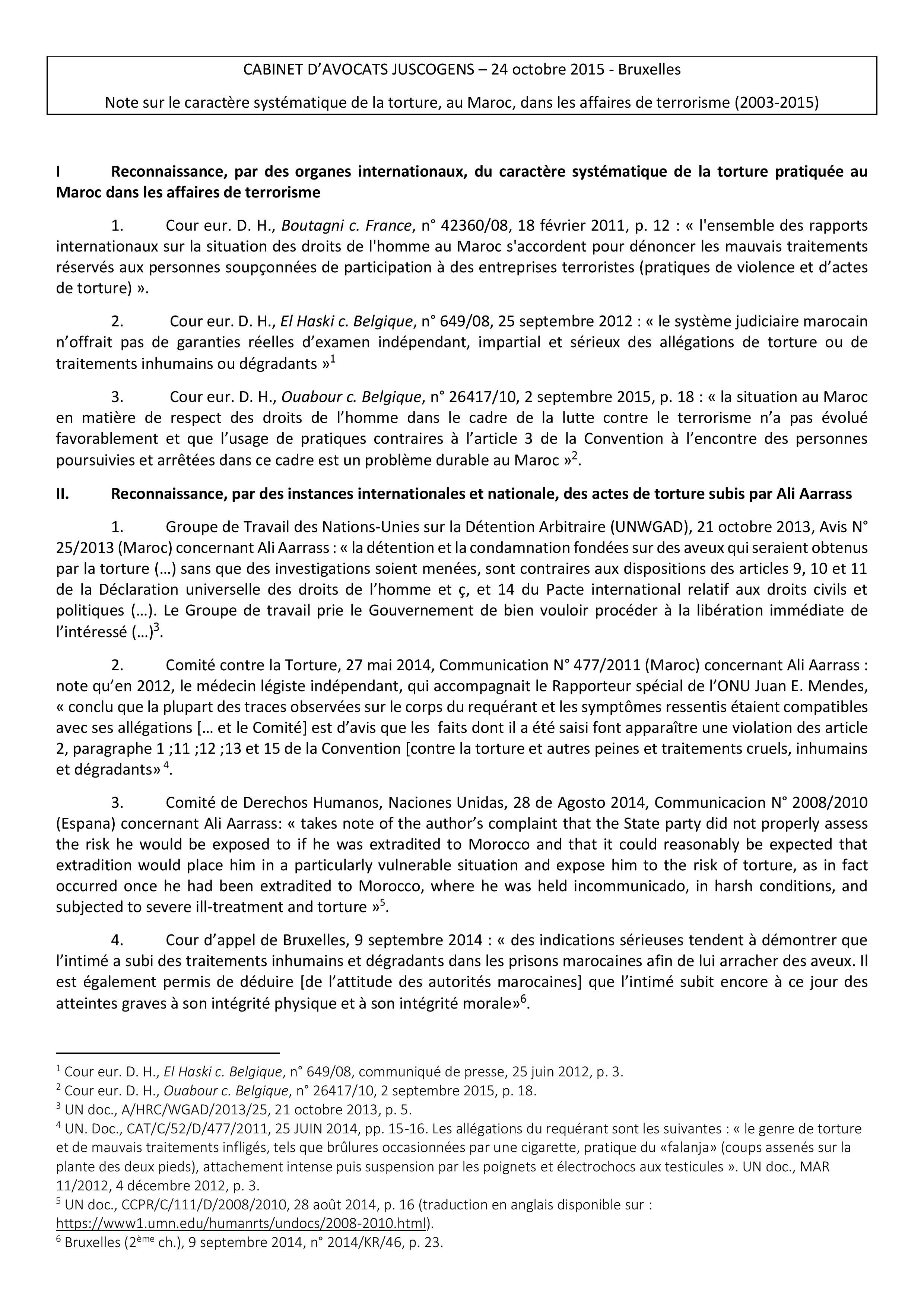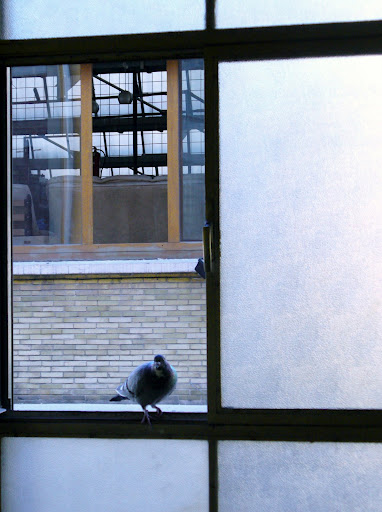 On 24 November 2011, Ali Aarrass’s trial finally took place before three judges of the Rabat court sitting at Salé. But despite the absence of any objective evidence,[1] including statements from his alleged accusers, Ali Aarrass was convicted and sentenced to fifteen years’ imprisonment, solely on evidence obtained by torture.
On 24 November 2011, Ali Aarrass’s trial finally took place before three judges of the Rabat court sitting at Salé. But despite the absence of any objective evidence,[1] including statements from his alleged accusers, Ali Aarrass was convicted and sentenced to fifteen years’ imprisonment, solely on evidence obtained by torture.
Without addressing any of the legal and factual arguments which the defence team mounted over three hours of oral submissions and in writing, the judges reached their decision in barely an hour. Worse still, although the hearing was scheduled to resume at 4pm, the magistrates didn’t wait but pronounced their sentence in the absence of the defence lawyers, Ali Aarrass’s family and many supporters. Ali Aarrass found himself facing the judges alone to hear their iniquitous verdict. Even the interpreter had not been brought back to court, so Ali Aarrass did not understand the judgment, which had to be translated for him by his lawyers in the cells of the court. The defence team could only interpret this as another way of putting pressure on Ali Aarrass. After suffering torture, punitive conditions of detention and then extreme isolation, Ali Aarrass is not permitted any confidential interview with his lawyers.
It’s worth recalling that at the same time, the Moroccan authorities have refused to investigate Ali Aarrass’ complaint of being tortured during his police detention. Elementary measures should have been taken before rejecting the complaint as unfounded; Ali Aarrass should have had a proper hearing, he should have been allowed to confront all the officers who were involved with him during his police detention, expert medical evidence should have been sought and his medical condition compared with his Spanish medical records … but nothing was done. Is this surprising? Not really. The same judges presided in the ‘Belliraj affair’ and handed down extremely heavy sentences despite persistent allegations of torture and numerous violations of fair trial processes, recorded both by NGOs[2] and official observers.[3]
Shamefully for Morocco, its judges persist in practices which violate the most fundamental human rights. The judges have even been disowned by King Mohamed VI, who has pardoned several of those sentenced to twenty years’ imprisonment in the ‘Belliraj’ case.
Will justice ever prevail in Morocco? Whether or not, the fight continues for Ali Aarrass, who has already lodged a complaint with the UN Committee Against Torture and the Committee on Human Rights.
[1] The Moroccan file contains nothing: no search warrant of Ali’s home, no phone intercepts, no forensic evidence …
[2] In particular the Arab Commission on Human Rights, ‘Report on the trial of six political prisoners in Morocco – the Belliraj affair’, 10 December 2009.
[3] Such as the Belgian consul, and see the wikileaks document from the US ambassador in Rabat, ‘Landmark terrorism case raises human rights’.





